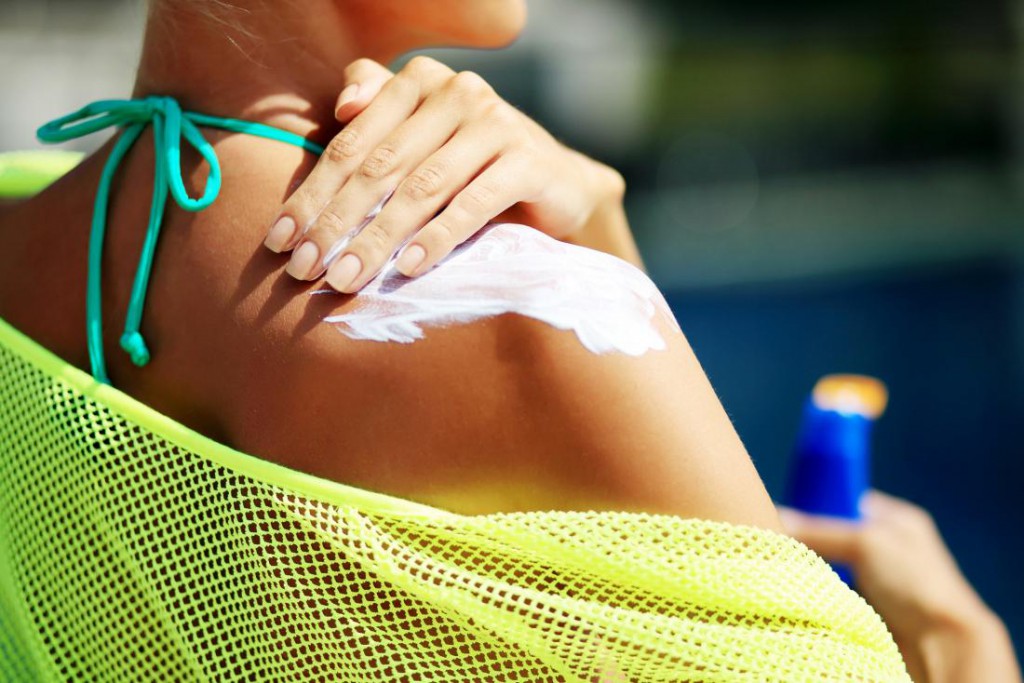How to choose sunscreen featuring UV filters?
 The tanning season is coming therefore it’s high time to think about protecting skin against UV radiation. The truth is, we should apply sunscreens all year long, no matter the climate we live in, yet during spring and summer this practice is considered as essential, not only before going to the beach. Find out how to choose sunscreen with UV filter and how to match UV filter to your complexion.
The tanning season is coming therefore it’s high time to think about protecting skin against UV radiation. The truth is, we should apply sunscreens all year long, no matter the climate we live in, yet during spring and summer this practice is considered as essential, not only before going to the beach. Find out how to choose sunscreen with UV filter and how to match UV filter to your complexion.
How to choose sunscreen with UV filter?
A good sunscreen protects skin against UVA and UVB radiation. Also, it contains substances absorbing free radicals, such as vitamin E.
First things first, the level of UVA and UVB protection is indicated by SPF abbreviation that stands for Sun Protection Factor. Sometimes, you can also find IP abbreviation that stands for Indice de Protection (French products). Both abbreviations, SPF and IP, go with a number that defines the time during which our skin can be safely exposed to the sun. The frequency of exposing our body to the sun depends on the complexion and strength of sun rays: the paler and more sensitive skin and stronger sun, the higher SPF should be applied. Kids and people having sensitive skin have to reach for sunscreens featuring SPF 25-30, and such products are also known as sun blockers. It’s also worth pointing out that sunscreens protecting against UVB rays may contain two kinds of filters:
- mineral (physical) that bounce back and scatter sun rays. They contain zinc oxide and titanium oxide. They cause neither allergies nor irritations therefore they are considered as perfect cosmetics to be used by allergy sufferers and children;
- chemical that absorb sun rays. They penetrate skin therefore they can cause allergy reactions.
How to match appropriate filter to complexion?
If your skin is pale, features freckles, hair is either ginger or blond, eyes either blue or green and if the skin is frequently affected by sunburns and is hard to tan, reach for SPF 30 or higher. When you’re planning to visit beach, you’ll need a sunscreen featuring SPF 50. If your complexion is fair, hair is blond, eyes either blue or green and when the skin is sunburn-prone, go for SPF 15 for everyday use and SPF 30 before visiting beach. If your complexion is slightly dusky, hair and eyes brown and if your skin gets tanned after initial sunburn, you need protection in the form of SPF 12-15, and SPF 20-25. If your complexion is dusky, your hair and eyes are very dark and if your skin gets tanned fast, you can go for SPF 8-10, and SPF 15 when visiting beach.

The Grand Mascara Test. Check Out Which Mascaras Should Get Into Your Makeup Bag!
Mascara should not only be long-wear but also effective. Many women experience problems when...
Lash Lift And Lamination Kit – The Best Products On The Market. How To Choose The Perfect One?
Natural eyelashes are often quite unruly and require a lot of effort to make them visibly...
Nanolash Mascaras – Which To Choose? The Lengthening or The Thickening One?
No makeup can do without a good mascara. This product makes the gaze look deep and, above...
How to Remove Face And Eye Makeup Properly?
Removing face and eye makeup properly is the basis of skincare. Without a thorough cleansing...